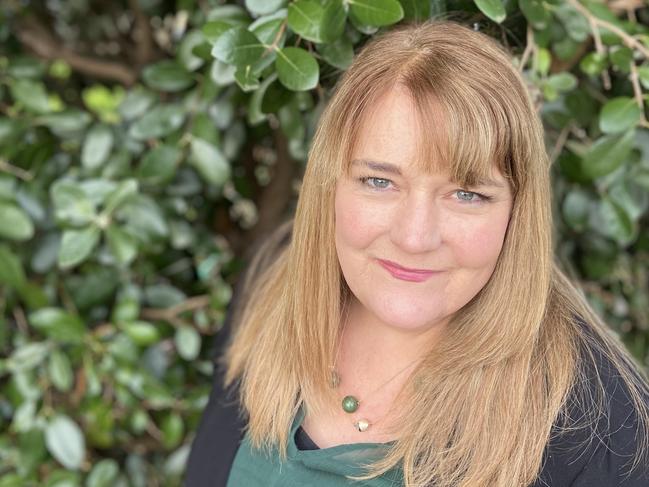Year 12 results: experts reveal what is more important than your ATAR
With tens of thousands of school leavers sweating the release of Year 12 results, experts stress that final school grades will not define the rest of their life.
Careers
Don't miss out on the headlines from Careers. Followed categories will be added to My News.
Year 12 results have little influence on future career outcomes, with employers appearing not to care how jobseekers performed at school.
The important thing is how young workers spend those first years out.
Career Development Association of Australia vice president Kate Flaherty says the pressure for students to do well in Year 12 is “crushing” but, outside the school gates, their results count for very little.
“This is not the predictor of the rest of your life,” she says.
“Getting a result that you didn’t expect doesn’t preclude you from what you want to do.
“Year 12 only really affects that first entry into university – it’s how you perform in that first year (after finishing school) that gets you options past that.”

SEEK research released ahead of last year’s exam results found just 21 per cent of Australians believed their Year 12 scores had a positive impact on their career, while only nine per cent said they had been asked their final year grades at a job interview.
ALTERNATIVE PATHWAYS
Flaherty says school leavers disappointed by their results should seek alternative pathways to their chosen career.
For example, they can enrol in a degree with lesser entry requirements and attempt to transfer to their preferred degree the following year.
They could also undertake vocational education and use that to gain entry to university.
A certificate IV qualification is considered equivalent to an ATAR result in the mid-70s, Flaherty says.
She says it pays to check whether high level study is even needed for a particular career, noting many people undertake a computer science degree to become a cyber security worker when a lower-level certificate IV qualification in cyber security is preferred.
Career Confident director Helen Green says school leavers can also opt for a more generalist degree aligned with their broad interests – such as a Bachelor of Science – then specialise during postgraduate studies.
“This way, you have time to adjust to university life, mature and keep your options open,” she says.
“(It allows you) to explore multiple specialisations within the discipline before choosing majors or studying a professional degree at graduate level.
“I have met many students whose interests change once they start university.”

Victoria University senior academic Dr John Weldon “technically failed” Year 12 after not meeting the requirements for two out of his five final year school subjects so knows first hand that there are “always ways to get where you want to go”.
“The days of Year 12 results being the one determining factor (to gain entry to a course) are gone and unis recognise that,” VU’s head of first year curriculum says.
“If you don’t get the marks you wanted to get into the course you wanted, you just have to be more creative and determined.”
For those going straight into the workforce, Year 12 results will pale into significance once they have on-the-job experience under their belt, according to Weldon.
“Year 12 is just a ticket to say, ‘I did that and I have demonstrated certain skills and I want to use that to get to the next step’ – once you get to the next step, you’ve got new skills (to progress further),” he says.
GAIN SKILLS THROUGH AN APPRENTICESHIP
A new report from PwC, Global Apprenticeship Network Australia, Social Ventures Australia and the Apprenticeship Employment Network suggests, however, that stepping straight into the workforce without a non-school qualification has become more difficult.
There has been a 50 per cent reduction in entry-level jobs since 2006.

GAN Australia executive director Gary Workman says an apprenticeship – which does not require an ATAR – can build employability skills and help young people find their passion as they work and learn.
“Skills like communication, team building, critical thinking and reliability on the job are not necessarily captured in an ATAR,” he says.
“Starting an apprenticeship to find an industry you’re excited by will be a much better measure of your capabilities and may even lead to a university pathway down the track.”
Natasha Martin, 21, spent her final year of high school stressing about her ATAR but has never been asked about it by an employer since.
“When I was in school, I thought I would go on to do graphic design,” she says.
“I wasn’t over the moon (about my ATAR result) but it wasn’t anything to be depressed about – I ended up getting three university offers.”

Martin chose a TAFE diploma instead of university, but ultimately realised graphic design was not for her so spent time working in a snow resort while she figured out what she wanted to do long term.
She set her sights on becoming an electrician.
Group training organisation Ai Group found her an apprenticeship with Albury Wodonga Health, where she has just finished her first year and says it is the best decision she has made.
“I wish now that I didn’t stress as much as I did in Year 12,” Martin says.
“I thought ‘if I don’t have a good ATAR I wont get anywhere in life’ but that obviously is not true.”
Originally published as Year 12 results: experts reveal what is more important than your ATAR




